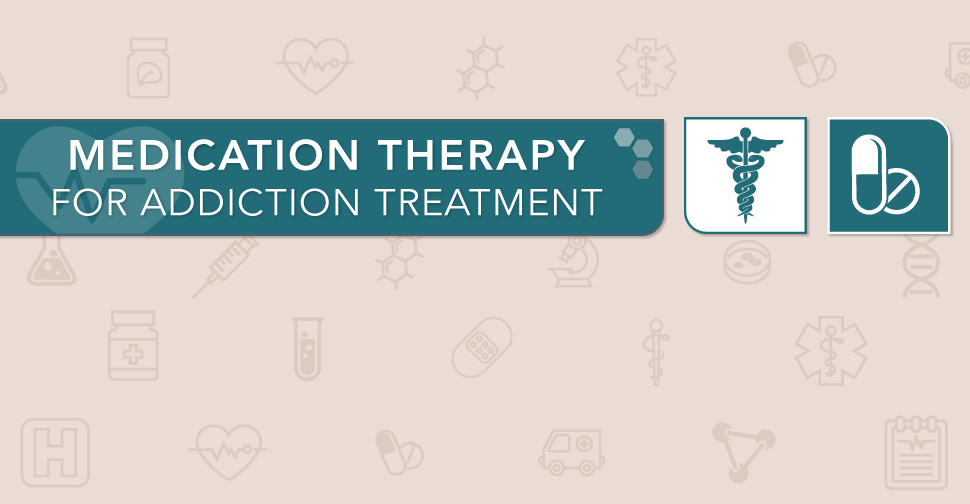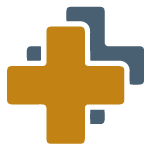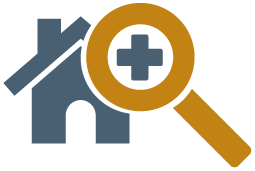
As the reality of addiction has become more apparent and better understood, more people understand that it is primarily a medical problem, not a failure of morality or personal strength. A person who is suffering from addiction has to be treated in an environment that supports their health and in one that uses scientifically-proven methods to promote health and recovery.
That’s one reason that medication therapy for addiction treatment has become such an important part of therapy. The use of medication to treat addiction takes a variety of forms and is implemented in many different ways. It isn’t necessarily just used to beat withdrawal symptoms, but can even be used to make it nearly impossible for one to use in the first place.
The world of medication therapy is truly promising. Being fully knowledgeable on this treatment method is important for understanding how your addiction can be treated in a healthy way.
How Are Medications Used In Treating Addiction?
There are several reasons that medications are used in treating addiction. The first is to manage your withdrawal symptoms by simulating the effect of the addictive substance on your body. These types of drugs are called agonists and they are typically used in a controlled and safety-conscious method to lower your reliance on substances. An example of this is the way in which methadone is used to treat addiction to opiates.
Another reason that medications are used is to prevent relapse. Typically, a medicine called an “antagonist” is used for this purpose. This type of medicine will make it impossible for you to use a drug or drink alcohol without getting sick. Naltrexone is one such medication used in heroin treatment. It makes it impossible for the opioids in heroin to attach to opioid receptors, creating a negative sensation that will make relapse nearly impossible.
The third reason that medicines are used in addiction therapy is to treat co-occurring conditions. These are mental health disorders experienced at the same time as an addiction which almost always make it worse. For example, depression and anxiety may cause a person to turn to drugs as a way to self-medicate. Appropriate medications for these problems (such as Cymbalta) are often prescribed alongside other medicines to keep a person calm and focused on recovery.
 Now that you have a better idea of why replacement substances are used in drug addiction treatment, you need to understand the specific medicines that are used. In this way, you can be better informed of your options should you choose to use medication therapy for addiction treatment.
Now that you have a better idea of why replacement substances are used in drug addiction treatment, you need to understand the specific medicines that are used. In this way, you can be better informed of your options should you choose to use medication therapy for addiction treatment.
What Types Of Medications Are Used?
The various types of medications used to treat addiction must be prescribed by a doctor for addiction therapy and nothing else. The medication prescribed will be decided upon by you and your addiction specialist. For example, if you have severe cravings and have a hard time avoiding them, an antagonist would make you sick to your stomach whenever you use and keep you away from relapse. Common medications used in medication therapy for addiction treatment include the following:
- Ondansetron – May be used to relieve opiate cravings, though it is typically used for other purposes.
- Antabuse – Causes unpleasant reactions when consumed with alcohol, helping to curb cravings.
- Gabapentin – Anti-epilepsy drug that has been used to treat bipolar disorder, a problem that may lead some people to turn to drugs as a treatment method.
- Buprenorphine – Used to help beat the withdrawal of opiates to make recovery easier.
- Methadone – Simulates the effect of opiates on your system to give you a more healthy dose while weaning off of opiates.
- Naltrexone – Reverses the effects of opiates, stopping an overdose or sobering a person up.
- Vivitrol – Decreases cravings in the early stages of opiate withdrawal.

Each of these medications has its own side effects, but these concerns are best discussed with your doctor, as listing all of them for each drug would require a separate article. As you can see, there are various medications for the most common drugs, each with its own advantages.
You may notice that cocaine and related drugs aren’t on the list. Cocaine is in and out of your system so quickly that your body detoxes from it in less than an hour. This is known as the cocaine “crash” and it will cause unpleasant physical sensations and intense cravings. These typically go away quickly, which is why cocaine doesn’t necessarily need any replacement medicines. That said, cocaine addiction may still be treated with medication therapy as often a co-occurring disorder compels someone to use.
In What Ways Are These Medicines Administered?
The use of medication therapy is one that requires sticking to a proper administration schedule and method. For example, all treatments must be approved by the FDA and the Substance Abuse And Mental Health Administration before they can be used. In nearly every state of the country, except for North Dakota and Wyoming, it is legal to use these types of medication in addiction treatment.
All treatment must be done in a proper medical setting, and anyone receiving these medications must receive counseling, vocational skills, and various other drug educational treatments during their stay in rehab. Remember that medication therapy is not designed to be a one-stop method for treating addiction. Instead, it is designed as a single tool in your fight against addiction. Alongside other treatment methods, it is a powerful way to get sober and stay sober.
Anyone who uses this kind of treatment is also protected by federal regulations for anonymity. In this way, your treatment can’t be used against you by others, such as potential employers. Once a treatment medication has been decided upon and approved, rehab specialists will begin administering it to you. Some may be used intravenously, but most will come in pill or other oral forms for easier consumption. At the right dosage, you should suffer none of the negative physical or cognitive effects of illicit substances.
As you move through the rehab process, you should start detoxifying from the negative substance as your replacement medicine takes its place. You will have transitioned painlessly and, from then on, your doses will be carefully monitored and decreased. Eventually, you’ll find that you’ll require less medication (beyond mental health prescriptions) and that your cravings will be greatly decreased, if not completely eliminated.
Is It Effective?
Medication therapy for addiction has been tested multiple times and has been shown to be effective in many different studies. For example, the Journal Of Substance Abuse Treatment tested medication therapy (which they refer to here as MMT) and came to this conclusion: “…MMT at appropriate doses is the most effective in retaining patients in treatment and suppressing heroin use but show weak evidence of effectiveness toward other relevant outcomes.”
What this conclusion means is that medication therapy is primarily an effective tool during the early stages of treatment, but may not be appropriate in later stages. In another study, entitled “Randomised Trial Of Heroin Maintenance Programme For Addicts Who Fail In Conventional Drug Treatments,” the appropriateness of heroin maintenance was tested and the conclusion was similar to the one above:
“A heroin maintenance programme [sic] is a feasible and clinically effective treatment for heroin users who fail in conventional drug treatment programmes [sic]. Even in this population, however, another attempt at methadone maintenance may be successful and help the patient to stop using injectable opioids.” They highlighted several key messages to take away from the study, such as the fact that patients who used a heroin maintenance program were more successful than those who did not use it.
Two positive studies don’t necessarily mean a treatment is effective, but there were other positive trials that seem to indicate that medication therapy is a good way to manage relapse cravings early in treatment and to minimize withdrawal symptoms. Getting past these early hurdles is often the first step to a life of sobriety, which makes medication therapy something worth considering.
When Should It Be Tried?
Medication therapy is typically used when a person suffers from a debilitating physical addiction from which withdrawal may be particularly painful and potent. For example, methadone has been used for years as a maintenance medication for opiates, one that is safer to use and easier to control than heroin or other illicit opiates. Typically, people who suffer from opiate and alcohol addictions use replacement medications due to the possibility of delirium tremens posed by both substances.
 This painful condition can cause hallucinations, seizures, cramps, severe nausea, vomiting, lack of consciousness, and even death. The physically addictive nature of alcohol and opiates makes it most common with these substances. With replacement medicines, you will have access to a treatment that helps you wean off without suffering from dangerous physical or even mental reactions.
This painful condition can cause hallucinations, seizures, cramps, severe nausea, vomiting, lack of consciousness, and even death. The physically addictive nature of alcohol and opiates makes it most common with these substances. With replacement medicines, you will have access to a treatment that helps you wean off without suffering from dangerous physical or even mental reactions.
Generally, replacement medications will be used at the beginning of your treatment during the detoxification period, but may be used in a light way during the rest of your treatment. By the end of rehab, you should be able to quit taking these medications, but other ones (such as anti-anxiety treatments) will still likely have to be taken. Getting off of these replacement treatments will be done in a slow and controlled manner to minimize the chance of negative withdrawal symptoms.
How To Find A Treatment Center Near You
With such a myriad of medicines available for addiction, you should have access to the kind of treatment you need to get sober. It will take a lot of concentration and some hard work, but it is possible to fight for your health and regain the life you love and the life you want. The right kind of medication may do a lot to help you get to that wonderful state.
 We can also do a lot to help you. At DrugRehab.org we have access to a variety of addiction treatment information, such as contact info on various rehab centers near you and a wealth of knowledge on specific recovery methods. With our help, you can get a jump-start on your recovery and become the happy and healthy person you were before addiction impacted your life. Contact us today!
We can also do a lot to help you. At DrugRehab.org we have access to a variety of addiction treatment information, such as contact info on various rehab centers near you and a wealth of knowledge on specific recovery methods. With our help, you can get a jump-start on your recovery and become the happy and healthy person you were before addiction impacted your life. Contact us today!
Sources
National Institute On Drug Abuse – Drug Facts: Treatment Approaches for Drug Addiction
Journal Of Substance Abuse Treatment – An Overview Of Systematic Reviews Of The Effectiveness Of Opiate Maintenance Therapies: Available Evidence To Inform Clinical Practice And Research
New York State Office Of Alcoholism And Substance Abuse Services – Addiction Medications
Substance Abuse And Mental Health Services Administration – Medication And Counseling Treatment
The BMJ – Randomised Trial Of Heroin Maintenance Programme For Addicts Who Fail In Conventional Drug Treatments

